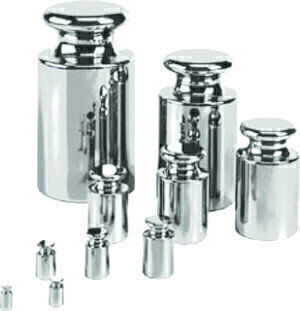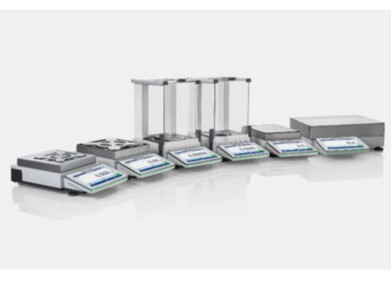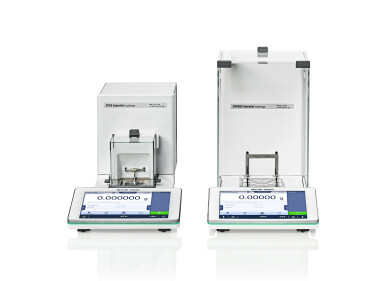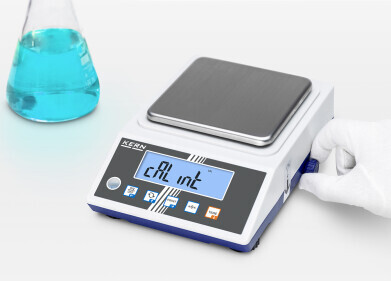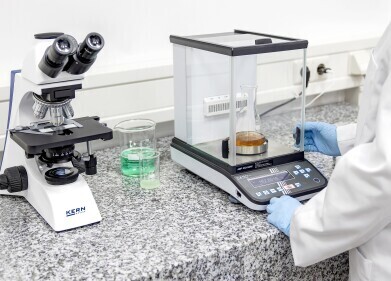Balances
When and why you should calibrate your balance
May 19 2014
The question frequently arises with a new balance, and the answer is simple: most manufacturers recommend calibration before the first use. And if you use your balance at all, regular calibration is critical.
There are many reasons a balance needs to be calibrated, according to Tom Storey, Director of Marketing with Adam Equipment, a manufacturer of scales and balances. Variations in temperature or barometric pressure make a difference, and even the simple process of shipping can affect the mechanics of the balance. They might seem insignificant, but these changes can mean big differences in results.
“Let’s say the ambient temperature in a room changes more than two degrees Celsius,” Tom Storey said. “Before you think about performing high-precision measurements, you need to calibrate your balance. Fluctuations in barometric pressure can wreak havoc with the results from a precision or analytical balance that hasn’t been calibrated. And if your locale has a different gravitational force than that of the factory producing the balance, calibration is necessary for precise measurements.”
Gravity is not the same everywhere on Earth, as our planet is not a perfect orb. Every place in the world is positioned differently to ‘magnetic north’. This variation results in slight gravitational differences, depending on a particular location’s altitude compared to sea level. If the balance is moved to a place where the gravitational pull is greater or less, it will display a different value, as the force will vary.
If you stand at either of the Earth’s poles, you are slightly closer to the centre of the Earth than if you stand on the equator. As you move closer to the centre of the Earth, the force due to gravity will be slightly greater. As you move away from the centre, it decreases.
“Therefore, if you climb a mountain, you move farther from the Earth’s centre and the effect of the gravitational force is less,” Mr. Storey said. “This is important, because balances measure the force of gravity that is pulling the mass toward the centre of the Earth.”
Balances react differently to location changes. A less-sensitive balance may not notice a shift in gravity after moving from one place to another. Highly sensitive laboratory balances will more readily display differences in gravitational forces.
“On the most sensitive laboratory balances, it’s possible that a very small difference in location can alter the balance’s calibration,” Tom Storey said.
Some balances are equipped with internal motorised calibration, and while this feature might cost more, it’s convenient and helpful. Since internal calibration is extremely easy, users might tend to calibrate more regularly. Most balances with internal calibration also offer external calibration, which is a fairly simple process, but requires more effort by the user.
During external calibration, a previously determined weight is always used to set the balance’s parameters, guaranteeing the results. For example, when a one-kilogram mass is used as the standard and placed on a balance, its force will always read as 1,000g. Any other weight that is placed on the balance will be measured against this standard.
Different standards (weights) used to calibrate might provide different readings. Previously purchased calibration weights aren’t the same as those used during the initial factory calibration, and a small variation can make a big difference in your results.
In some instances, balances must meet specific traceability requirements for ISO purposes or to adhere to other regulations. These situations necessitate the use of certified calibration weights. Traceable calibration can be accomplished as long as certified weights are used in the procedure, and balance service companies specialise in calibration certification.
To achieve optimal precision and consistency in measurements, Tom Storey recommended users adhere to operation and maintenance guidelines recommended by the manufacturer.
Digital Edition
LMUK 49.7 Nov 2024
November 2024
News - Research & Events News - News & Views Articles - They’re burning the labs... Spotlight Features - Incubators, Freezers & Cooling Equipment - Pumps, Valves & Liquid Hand...
View all digital editions
Events
Nov 20 2024 Karachi, Pakistan
Nov 27 2024 Istanbul, Turkey
Jan 22 2025 Tokyo, Japan
Jan 22 2025 Birmingham, UK
Jan 25 2025 San Diego, CA, USA

